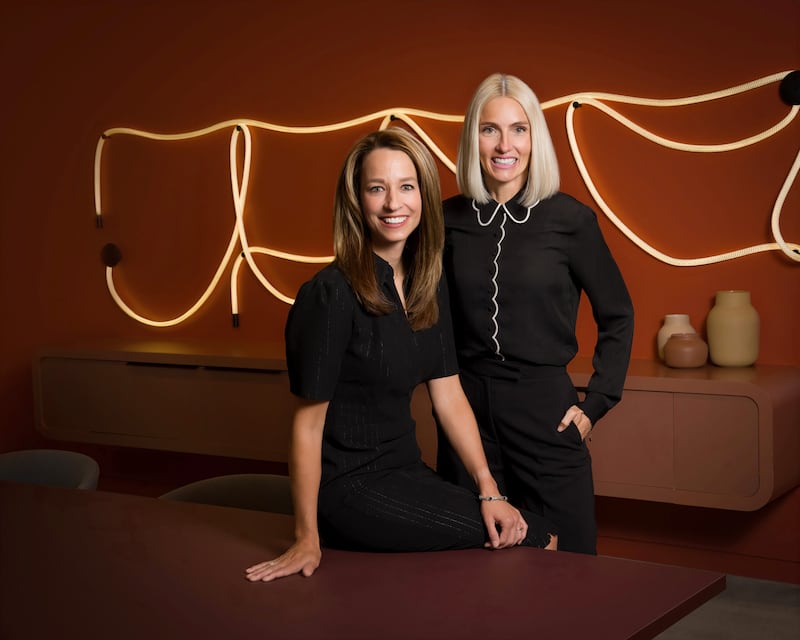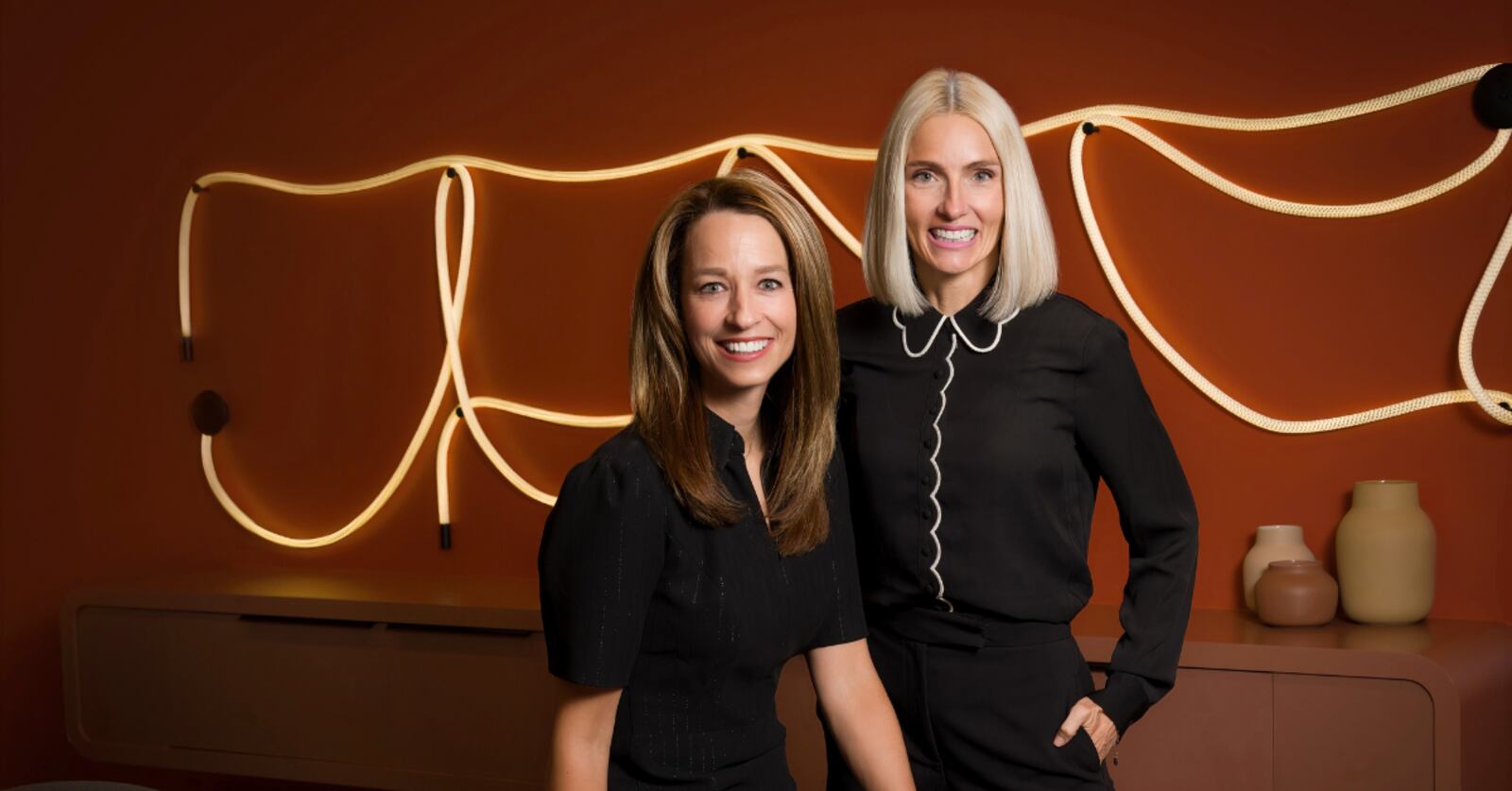
Photo by Dave Labrum, shot on location at Clearlink
This article originally appeared in Modern Day Utah Pioneers, a publication sponsored by Clarke Capital.
If you have the chance to sit with Utah First Lady Abby Cox in the grand parlor of the Governor’s Mansion, take it. The room is regal with yellow walls, exalted art and ornate gold accents. It’s more reminiscent of the Palace of Versailles than the rugged mountains of Utah, and it feels entirely appropriate for a head of state and first lady.
The tone changes when she enters, vibrant with life and sincerity. Cox’s relaxed and open nature feels familiar, and she’s like an old friend—quick to laugh about the woes of raising children and the demands of public life.
But her ease in manner is not to be confused with a casualness about her role. Cox takes her duty to the state of Utah very seriously, and her contagious Show Up Utah initiative—which asks Utahns to “show up” for service, foster care, educator wellness and Special Olympics Unified Sports—is positioned to impact the state’s citizens far beyond her time as first lady.
Born number five in a family of 10 children, Cox grew up on a 600-acre ranch in Mount Pleasant, a town in central Utah with a population of 3,920. There, she spent her days attending school, moving pipe and riding bikes. She spent summers ranching with her family and dude ranching in Colorado.
“We were raised to be independent, follow our dreams, explore and live our lives,” Cox explains.
One other message rang clear in her youth: the importance of education and the expectation that she would pursue college with intention.
“I looked around, and almost none of my friends had parents who went to college,” Cox says. She had her sights set on something bigger.
Yielding from a long matriarchal line of educators, Cox followed suit and pursued her education as a special ed teacher. She encouraged her young husband, Spencer—now Utah’s governor—to forego attending Brigham Young University and join her at Utah State University, where her program was offered. He obliged.Cox describes her role in the two and a half decades following early marriage as “a stay-at-home mom of 24 years,” during which she ensured her children and home were cared for while her husband pursued his career and political ambitions. During that time, Cox also filled roles in the parent-teacher association and church organizations. Here, she developed skills in delegation, organizational and household management, budgeting and understanding the needs of humans and how they connect.
Cox says a key to her service is to consistently question, “What’s meaningful? Where are holes I can fill? How can I have the most impact?”
“I don’t want to do anything fluffy,” she adds.
Fast forward several years, and that farm girl-turned-stay-at-home mom has wielded her no-fluffiness attitude to run what is among the most impactful initiatives headed by a first lady of Utah in the history of our state.
Cox has composed a board of some of Utah’s most successful women and men, engaged businesses and other nonprofits in her work, and led committees, staff, and a small army of volunteers in using their talents to ensure her mission and vision for the state is working. And Cox doesn’t see small. Instead of one focus, Cox set her sights on four. Here are her thoughts on each:
- Service. “Service has the power to create meaningful connections, promote personal growth and positively impact the world around us. It is an essential part of leading a fulfilling life.”
- Foster care. “In Utah, more than 2,600 children are in foster care because their families are in crisis. Through no fault of their own, they have experienced trauma, heartbreak and displacement. Every child deserves a safe home with a loving family.”
- Educator wellness. “Teachers are the backbone of our communities and deserve unwavering support. We can do more to ensure our educators receive the support they need to stay in the classroom and thrive.”
- Special Olympics Unified Sports. “[These activities] foster greater empathy and understanding of our friends with intellectual disabilities. Together, we will reduce discrimination and prejudice. [The organization] pairs people with and without intellectual disabilities on the same teams, creating a fast and meaningful path to friendship and understanding.”
In determining her focus, Cox describes, “I had to think about where my passions are. I had to go back to education and special education. I had to talk to people I trusted.”
And despite the legacy she will undoubtedly leave in this role, notoriety is not her motivation.
“I know I’m not going to be here forever,” she says. “If I can get each of these projects to be self-sustaining, that will be a success.”
That’s the thing about Cox: she gets proximate with people. She believes all can rise to the occasion of serving others and building a more beautiful community.
I can’t think of a better balance of the regal and the rugged for the role of a first lady.

